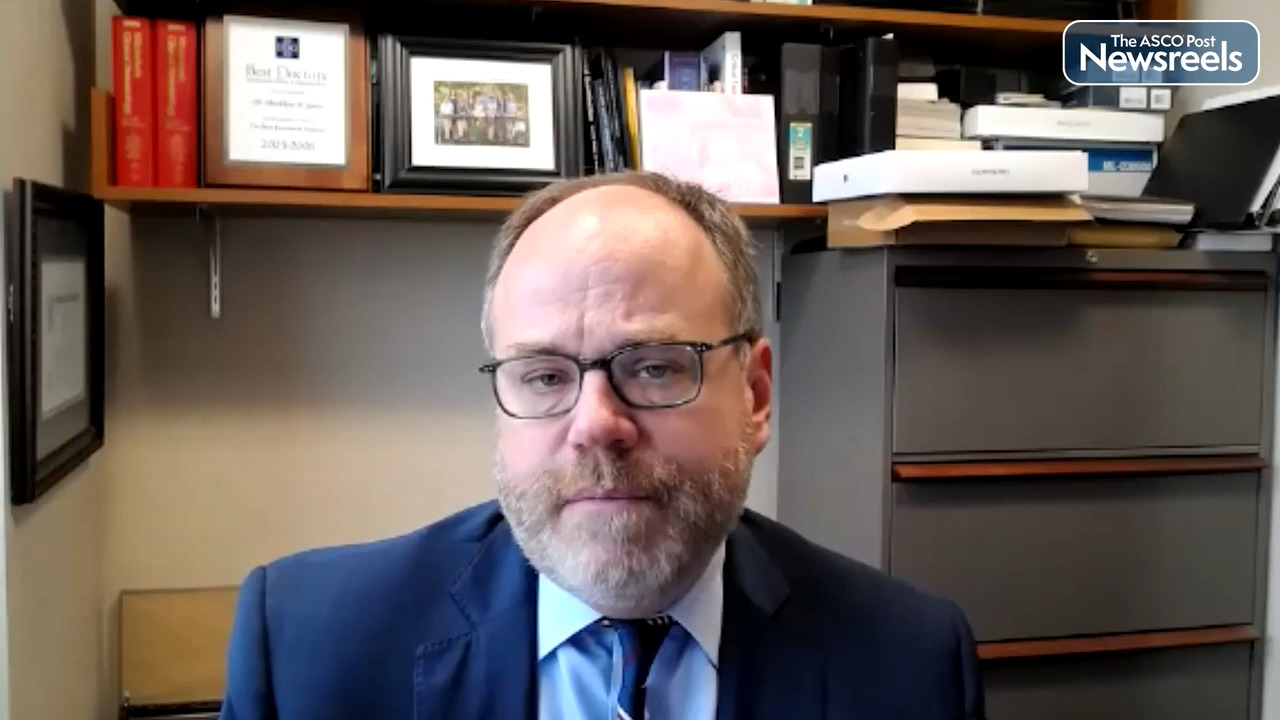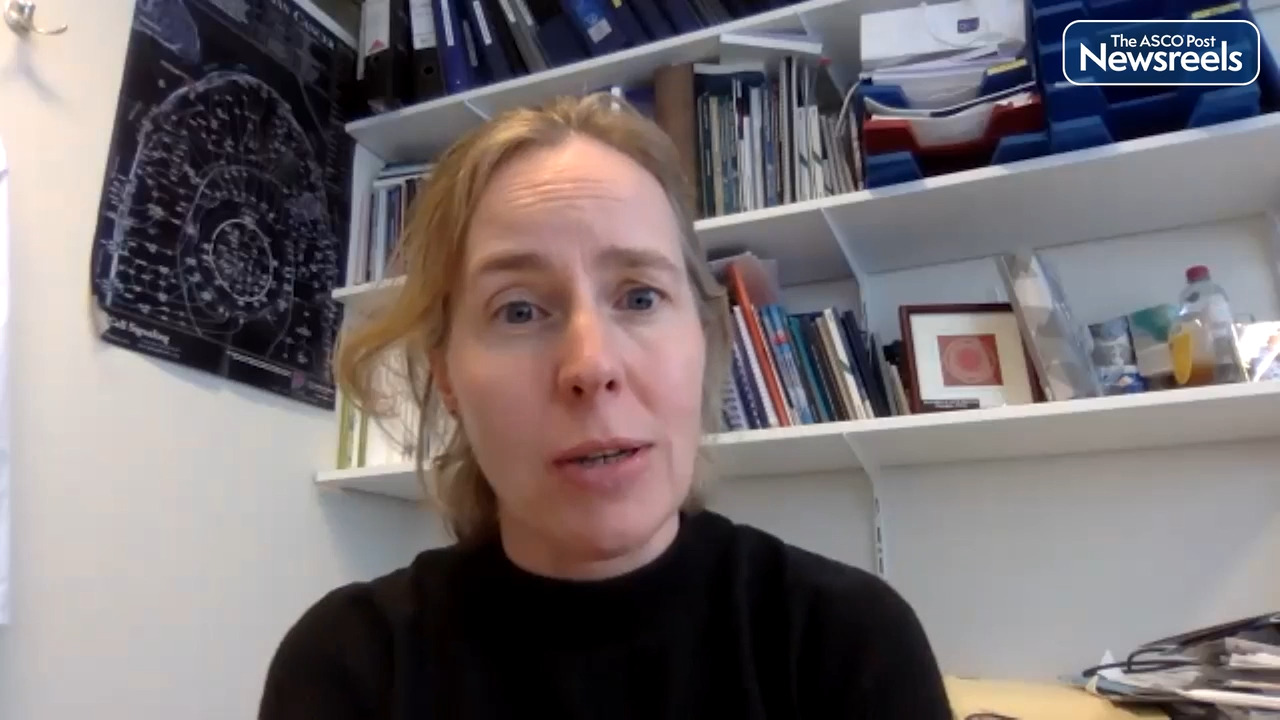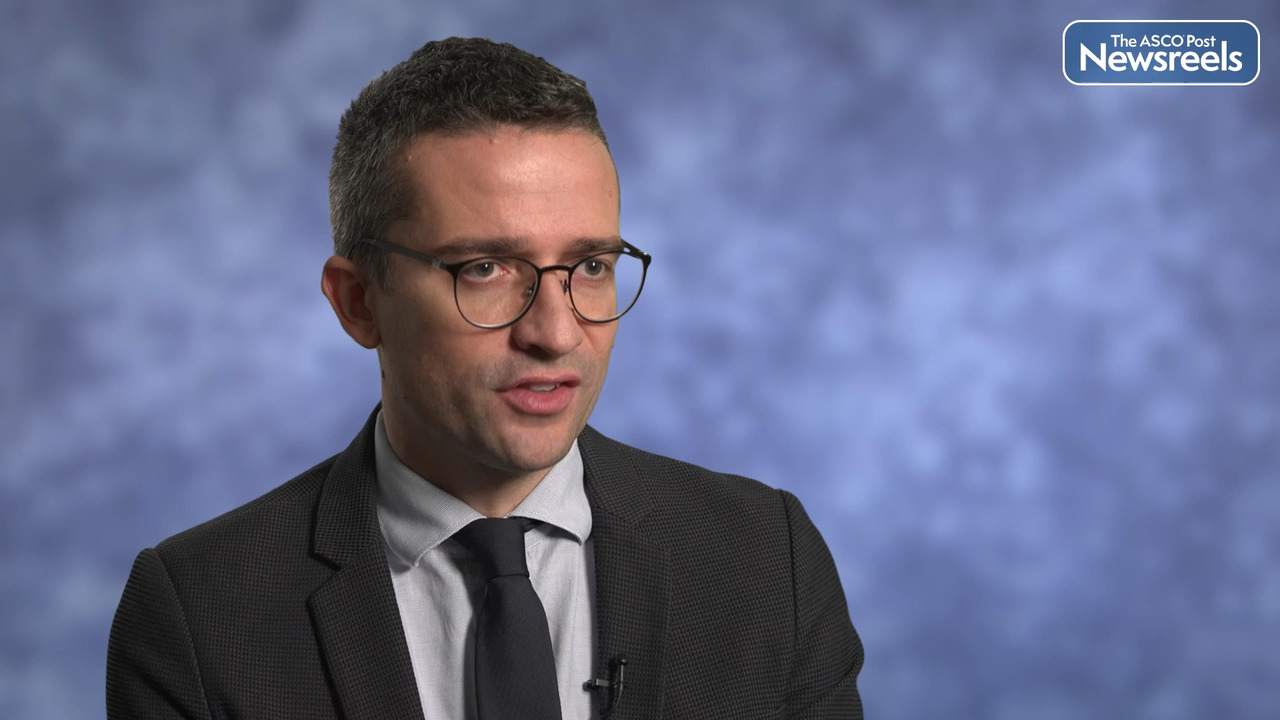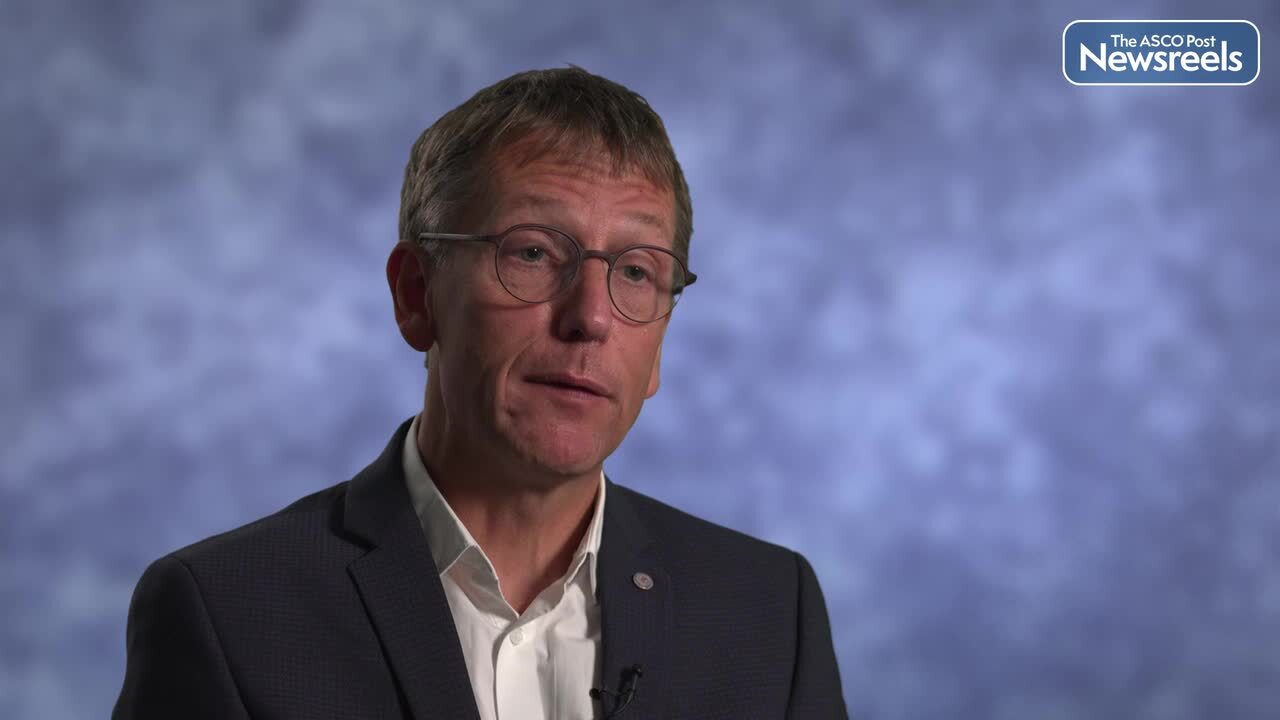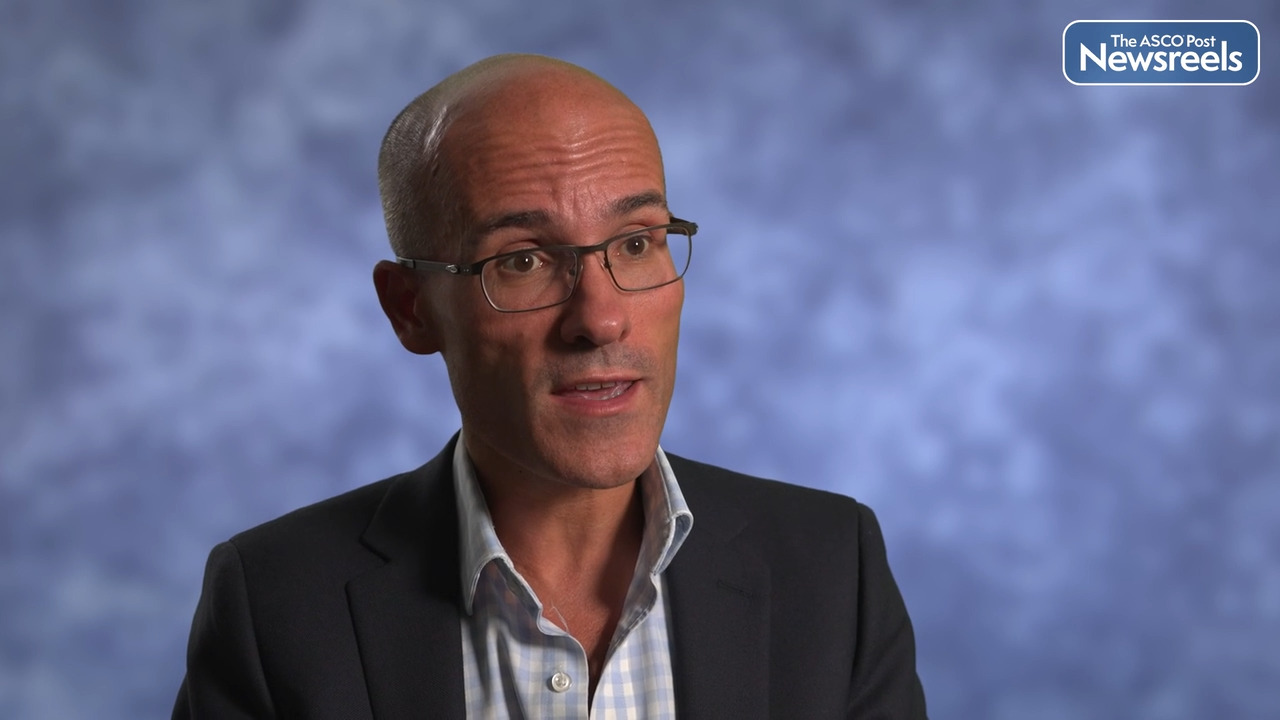Transcript
Disclaimer: This video transcript has not been proofread or edited and may contain errors.
The CheckMate 914 trial compared nivolumab plus ipilimumab to placebo in patients who had undergone a nephrectomy for clear cell carcinoma and were at substantial risk of recurrence. The eligibility included patients who were pT2a high grade, any pT2b, any pT3, pT4, or N1 positive disease, and the patients were randomized one to one to Nivolumab, 240 mg IV every two weeks for 12 doses, ipilumumab 1 mg/kg IV every six weeks for four doses or matched placebo. The expected treatment duration of this study was six months. The trial randomized over 800 patients and the patient characteristics were quite balanced. The majority of patients, nearly 80%, fell into the pT3a category. The primary endpoint of the trial was disease-free survival by blind, independent central review, and at the time of the analysis, the trial did not reach the primary endpoint.
The hazard ratio for comparison between the two arms was 0.92, and the P value was 0.53. The 24-month disease-free survival rate was 76% for NIVO plus IPI, and 74% for placebo. The adverse event profile for NIVO plus IPI was similar to that, which we had seen in the studying of advanced disease. However, few patients, relatively few, completed the full 12 courses of NIVO and four of IPI, only 57%. The proportion of patients that had treatment-related grade three or higher AEs was 28% for NIVO plus IPI, compared to 2% per placebo. This is actually a lower rate than we saw for NIVO plus IPI in the setting of metastatic disease, but the treatment discontinuation rate was relatively high in this trial in the adjuvant setting. Treatment adverse events were as expected. The most common was pruritus, fatigue, and diarrhea, as we'd expect for NIVO plus IPI, and the proportion of patients who required high dose steroids on this NIVO plus IPI program was 23%.
In summary then, part A of CheckMate 914 trial, which compares NIVO plus IPI to placebo in patients with localized RCC at high risk of post-nephrectomy relapse did not meet the primary endpoint of disease-free survival. The safety profile of NIVO plus IPI was consistent with the known profile for the combination of advanced RCC. However, the rate of discontinuation due to treatment-related adverse events was considerable with NIVO plus IPI in the adjuvant setting. Further analysis underway to understand the outcome of CheckMate 914 with regard to the patient population studied, and there is a part B, which is essentially a separate trial that has a primary endpoint of comparing NIVO monotherapy to placebo. That study is ongoing.
